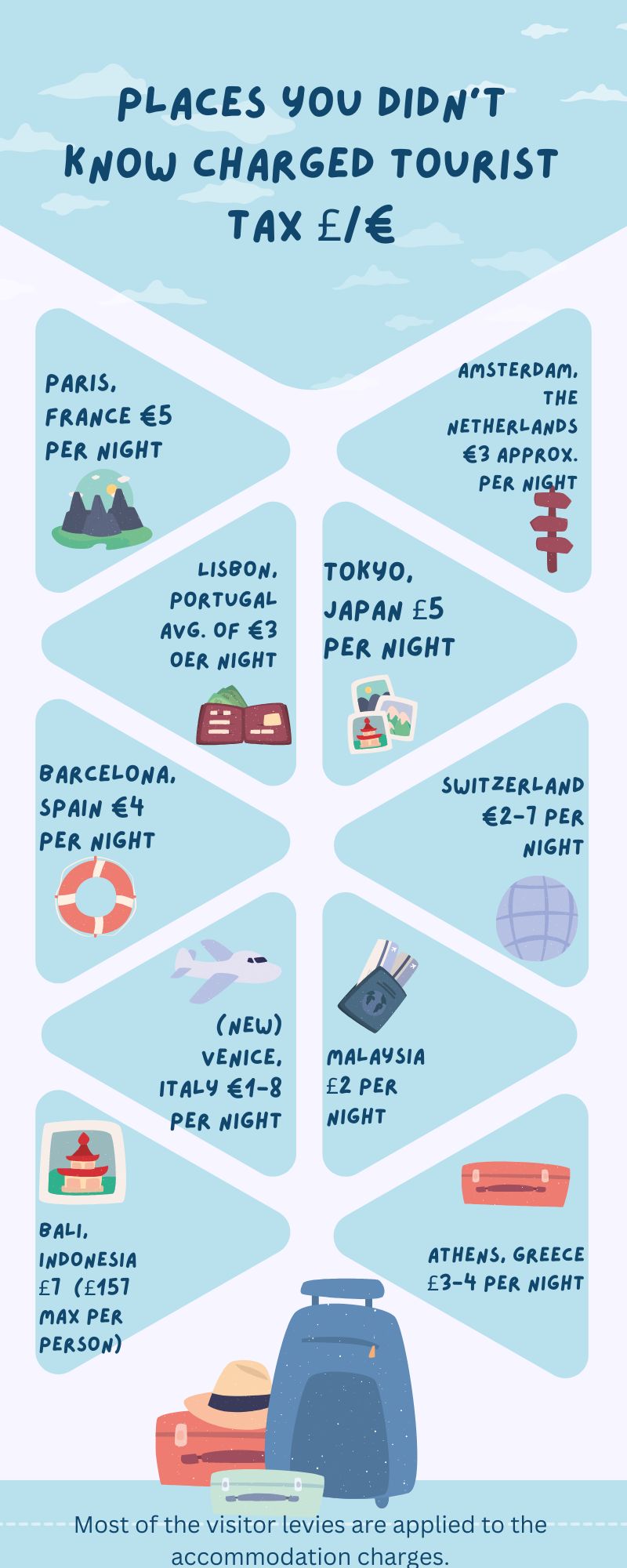European cities have seen more tourists and higher revenues after introducing tourist taxes over the years. Could this be the right answer to boosting Welsh revenue?

Tourists may pay a fee on visiting Wales as the Senedd is set to review a tourist tax proposal that could be introduced as early as 2027 to tackle shrinking budgets.
The joint cooperation of the Welsh Labour and Plaid Cymru reintroduced a tourism tax bill last year, referring to it as “a contribution to a sustainable future”. The bill would see visitors paying a small fee for every night they spend in Wales, with revenue going towards the development of sustainable tourism and economic growth.
“If a tourism tax is charged, tourists can help Cardiff share some costs. For example, public transport and facility maintenance, waste sorting and disposal,” said Chen Li, a business management researcher at Cardiff University.

2024 has seen a number of popular tourist cities implementing a tourist tax including Venice and Bali, joining the likes of Amsterdam, Barcelona and Paris, with the potential for Welsh cities to introduce a similar tax soon.
This ‘tourist tax’ charge aims to initiate balanced tourism in Wales to promote sustainability pointing out how it could remove pressure from local communities and boost the availability of amenities for locals and tourists alike.
Chen, the 26-year-old Cardiff resident pointed out, “In this way, the financial burden on Cardiff can be reduced, allowing the city to maintain relatively healthy fiscal revenue and expenditure in the face of inflation.”

Tourist taxes are generally levied on a particular area’s visitors and normally appear as a fee per room or bed taken, or per night. Countries such as France, Spain and Canada have maintained their tourist taxes through their accommodation fees for the past few years.
Though the UK does not permit any form of tourist tax by law, the proposal from the Welsh Government does not come as a surprise as Scotland did the same last year. Indonesia, Malaysia, Bhutan and Japan have stepped up to introduce specific visitor levies for the maintenance of their cultural heritage.
However, the UK will impose an Electronic Travel Authorisation (ETA) from 2024 where it will be required to ask for permission and pay a fee to enter the country. This would differ from a visa and applies to travellers from the United States, Europe, Australia and Canada.

Cardiff resident James Howard reacted to the possible introduction of the visitor levy: “I believe that tourism may not be the best way to generate taxes in Wales, if it were cities like London or Edinburgh, it would still make sense.”
According to data from the Government of Wales, the visits into Wales dropped by 33% from 2019 to 2023, coming to a figure of 686,000. On the other hand, Scotland and England saw 3.2 million and 13.2 million visits in 2023 respectively, with London alone getting about 16.1 million visits in 2023.
The Australian traveller who frequently travels back and forth to European countries and back to the UK, has lived in Cardiff for the past 5 years and he expressed, “I don’t see a lot of people coming for tourism purposes as all I think there is to see here is the Castle, stadium and some parks here and there. Cardiff as Wales’ capital city may not be the best choice to generate tourist tax.”

